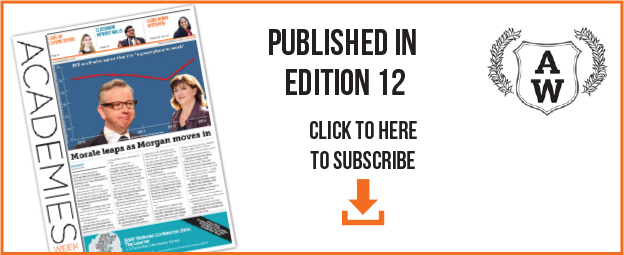The principles underlying the changes to GCSE maths are sound. But the practicalities are less so. For a start, where will all the extra teachers come from?
When Michael Gove announced last November that maths GCSE was going to get tougher, I doubt many of us realised just how tough. From September, it will almost double in size.
The new qualification will provide greater challenge for the most able students. This is a welcome change; it will better prepare students for the demands of maths A-level. At present a student can get an A* in maths GCSE if they are bright and hard-working, even if they have gaps in their underlying mathematical understanding. From 2017, the top grade will be much harder to achieve and will require deep conceptual understanding of a broad range of mathematical topics, as well as strong reasoning and problem-solving skills.
The changes to the foundation tier focus on ensuring that every student masters fundamental maths. The syllabus now includes a large number of topics previously reserved for higher tier students, including quadratic equations and trigonometry.
Given that students often start year 7 sometimes not knowing their times-tables and even unable to tell the time, this will be challenging. At secondary school we have five years to build up their confidence and to develop their mathematical fluency and understanding of a broad curriculum. It’s a daunting task, but entirely worthwhile.
The reforms value mathematics as fundamental to facilitating learning in other subjects and the principles underlying the changes to GCSE are sound. Unfortunately the practicalities are less so.
Mr Gove’s announcement anticipated that schools would want to increase time spent teaching maths. Given the amount of new topics there is clearly a need for a significant increase in contact time, and not just at GCSE. To master the underlying conceptual knowledge, more maths teaching time is also needed at key stage 3.
Entire cohorts will sit their exams in 2017 woefully unprepared
Proactive schools are ahead of the game – they have already implemented new schemes of work, accompanied by an increased number of maths lessons at both key stages 3 and 4. In many cases, time at key stage 4 has been found by reducing the number of GCSEs taken by the 2017 cohort. Where key stage 3 maths teaching time has been increased, this may have been achieved by reducing lessons in subjects such as dance or drama.
Schools that choose not to increase maths teaching time are likely come unstuck two years from now. They may end up rushing through the syllabus or simply be unable to complete it. Entire cohorts will sit their exams in 2017 woefully unprepared. Why aren’t these schools following the government’s advice to increase
teaching time in maths? In most cases it’s because they will be unable to staff the additional lessons.
And here we have the real problem. To add an extra hour a week of maths lessons, schools will need to recruit an additional maths teacher. This is where the plan starts to fall apart. Currently around one in five schools has a vacancy in maths – and the recruitment crisis is worsening. With the requirements of the new GCSE, plus the introduction of the new core maths post-16 qualifications, the number of vacancies is set to rise dramatically this year. Where will the teachers come from to fill them? Demand is increasing at the same time that supply is falling.
Has the government put the cart before the horse? Before devising a new qualification that requires additional teachers, they should have ensured a sufficient supply of maths teachers. This isn’t just a recruitment crisis. It’s a failure of education for a generation of young people. It’s a catastrophe for the country. The government is concerned about the UK’s global competitiveness and they’ve determined that maths education is the key. But without teachers, we can’t implement their policies. It doesn’t take a mathematician to see that the numbers just don’t add up.
Joanne Morgan is a maths teacher and blogger








Excellent points from Joanne from the perspective of a Maths teacher. If you are a Curriculum Deputy you will be asking yourself about the implications for other subjects. Will I be making my Drama teacher redundant? What are the implications for students of having fewer GCSE options? How will students react to spending more time in Maths and less time in PE etc? It would be nice to think that someone at the DfE had thought of all these issues before going ahead with the Maths changes. My guess is that they didn’t even have the nous to ask the questions. Why would they? Has anyone there ever run a school? Has anyone there even asked someone who runs a school (and I don’t mean a multimillionaire hedge fund academy donor who is in it for the knighthood). I think most of us know the answer to these last 2 questions. I think it’s “no they have not”.
It would be really helpful if we could see some evidence of joined up thinking by DfE and BIS. These 2 government departments seem to be a cross purposes with DfE, through the new GCSE, prioritising preparation for A Level and degree and BIS desperately trying to get enough functionally numerate apprentices. Interesting to learn on Friday that in the cohort where 68% got a C or above in GCSE less than a third passed a Level 2 numeracy test – is this about inappropriate curriculum or short term retention of topics drilled for the exam?
I’m a maths teacher. As it stands, I’d rather take a low-paid job in another sector and cut my expenditure than teach. What does that tell you?